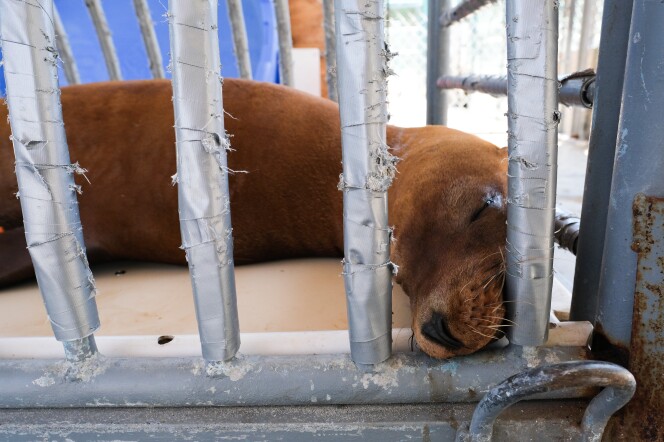This story is free to read because readers choose to support LAist. If you find value in independent local reporting, make a donation to power our newsroom today.
California tariffs lawsuit thrown out, but it’s not over

A judge threw out California’s lawsuit against President Donald Trump’s tariffs this week, but the case will keep going because the state itself asked for the dismissal.
State Attorney General Rob Bonta’s office said he will immediately appeal to the United States Court of Appeals for the 9th Circuit.
The Trump administration had requested that the California lawsuit, filed in April, be transferred to the U.S. Court of International Trade. The federal court judge in San Francisco rejected the transfer on Monday, even though she said she believes tariff questions belong before the federal trade court.
“Because California requests dismissal rather than transfer to the CIT, transfer is not in the interest of justice,” wrote U.S. District Judge Jacqueline Scott Corley in her ruling. She also wrote that the Trump administration “could not articulate” why it would serve the interest of justice — in other words, be fair — to transfer the case.
Bonta said in a statement that he was “pleased” that the decision gives the state a chance to bring the case before the 9th Circuit. Bonta has argued that Trump’s tariffs are illegal under the International Emergency Economic Powers Act, which the administration says gives the president the authority to impose wide-ranging tariffs.
Trump has already lost two cases that made the same arguments. Last week, the Court of International Trade ruled that the tariffs are unlawful because Trump has exceeded his authority under that act. That decision, in a lawsuit brought by Oregon, 11 other states and five businesses, has been put on hold pending an appeal by the Trump administration. A federal district court judge in Washington, D.C. also made a similar determination last week in a suit brought by a couple of small businesses.
The tariffs — which have so far affected California ports, agriculture and other industries — remain in effect in the meantime.
Legal experts say Bonta is more likely to get a favorable ruling in the 9th Circuit appeals court, which has a reputation for being liberal. But they differ on whether the case belongs in that court.
“It’s hard to see how it belongs in the 9th Circuit,” said Richard Steinberg, professor at UCLA School of Law. “It’s a tariff case.”
Brian Peck, adjunct professor at University of Southern California Gould School of Law, said “the whole question is whether the (International Emergency Economic Powers Act) gives the president the power, which is more of a constitutional question, so it should be before the 9th Circuit rather than the Court of International Trade.”
An appeal from the trade court would land before the Court of Appeals for the Federal Circuit, which Peck said might be more favorable to the Trump administration because it has historically been more deferential to presidential powers.
Bonta recently spoke about his tariffs lawsuit at a roundtable of business leaders in San Francisco, and he noted that the act “doesn’t mention the word tariffs.”
“Since the Court of International Trade deals with civil actions arising out of U.S. customs and international trade laws — which we argue does not include (the emergency economic powers act) — we believe the 9th Circuit has appropriate jurisdiction here,” wrote Elissa Perez, a spokesperson for the attorney general, in an email to CalMatters.
The White House did not respond to CalMatters’ request for comment.
Peck and Steinberg both said they think the question over Trump’s authority to impose tariffs the way he has been doing — broadly and without consulting Congress — is likely to end up before the Supreme Court.
Steinberg said the Trump administration can cite other statutes that give him the power to impose tariffs, but they would be more restrictive. But he doesn’t doubt that the president will keep trying.
“This is an endless game of whack-a-mole,” Steinberg said.
-
Forget the high-priced festivals. You can regularly see bands in L.A. for under $30, often for $10 or less.
-
Talks between 14,000 workers and hotel operators in SoCal have fallen through.
-
Marine mammal treatment centers are overwhelmed by sick sea lions, likely due to a toxic algal bloom off of the Southern California coast.
-
The Titanic director made 33 dives to the shipwreck and visited ocean depths in a submersible he built himself. He compares OceanGate to the Titanic, in that both ignored safety warnings.
-
Recent attacks by people who professed white nationalist and neo-Nazi sympathies but are not white themselves have raised a question: Why are some people of color drawn to white supremacist ideology? The answer is complicated.
-
The last time one of the animals was seen in California was in 2008, and prior to that the most recent sighting occurred in 1922.















